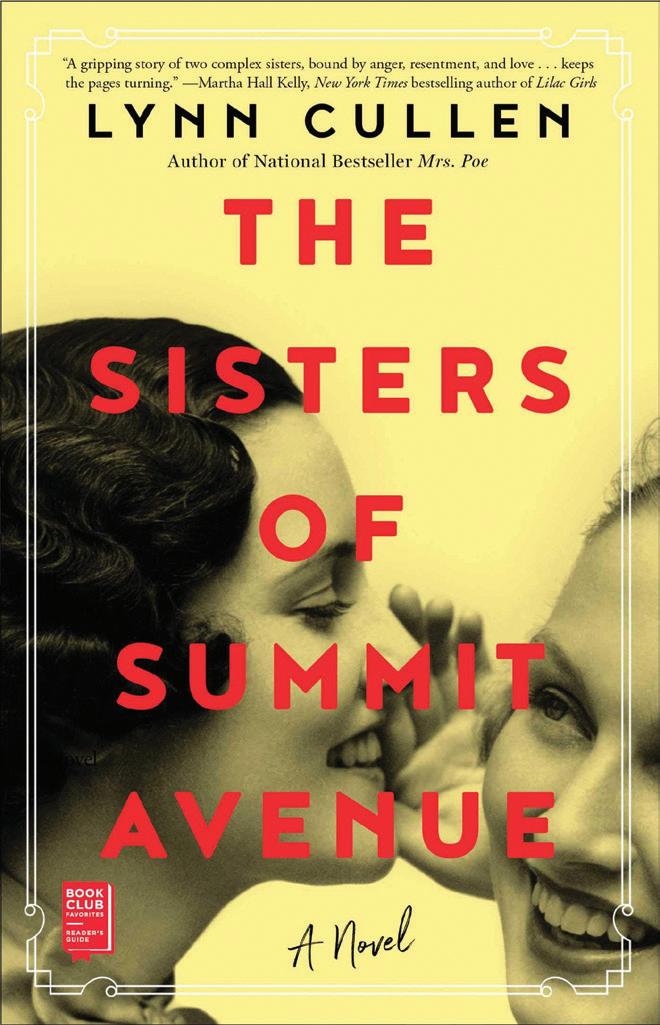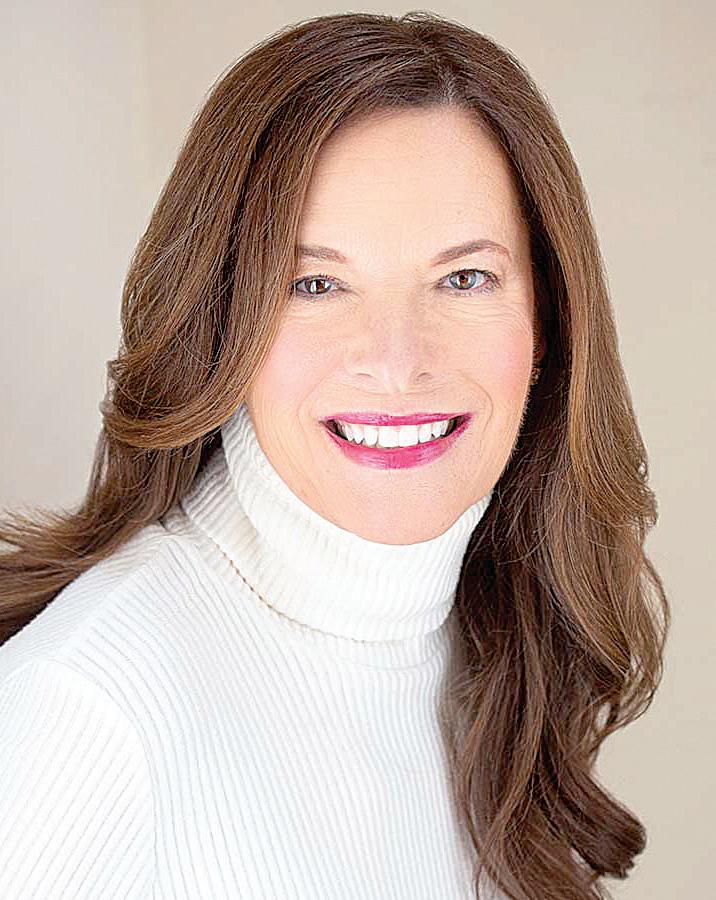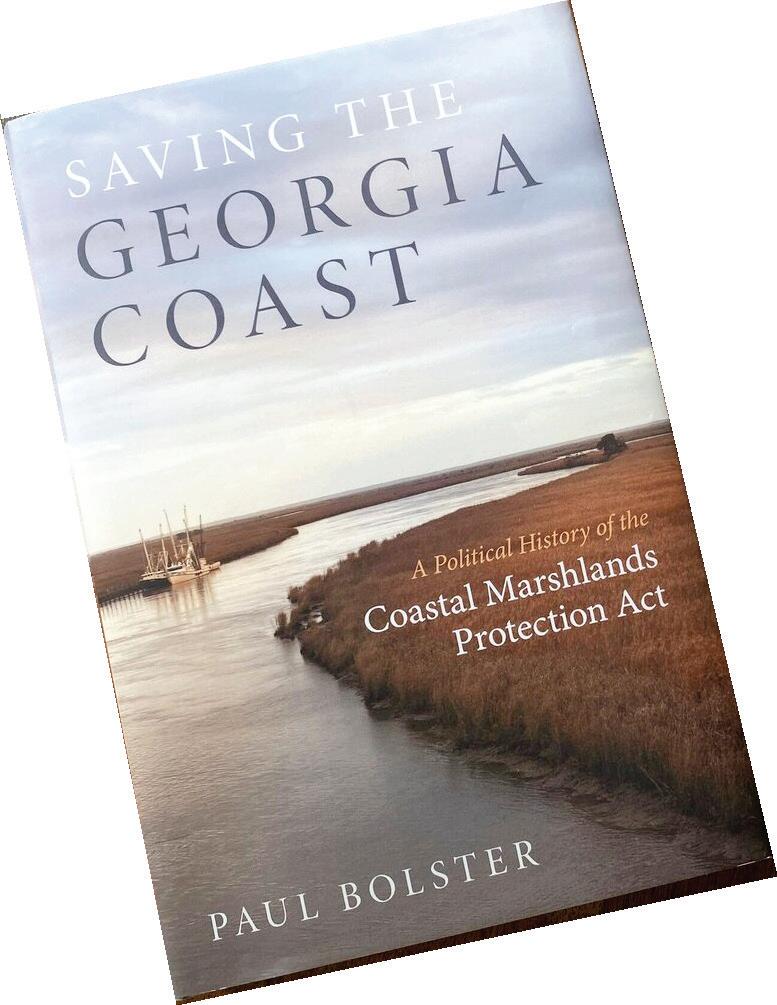
7 minute read
COVER STORY
Tori Whitaker FINDING THE WRITE STUFF
Advertisement
By Michele Ross
Many people dream of becoming writers. Many more feel sure they know the perfect idea for a bestseller — once they get around to writing it. Still others argue they could be authors if only -- pick one: a) family; b) work; c) other commitments — didn’t take up so much time.
Here are several metro Atlanta seniors who didn’t let any reasons—or excuses—keep them from achieving their dreams of writing books.

Lynn Cullen
Fans and critics may praise the works of best-selling historical novelist Lynn Cullen of Decatur, but she gives credit for her writing to her Aunt Ruth in Fort Wayne, Indiana.
When Lynn was 9 years old, she and her family took a trip to the countryside near Eden, Ohio, where her Aunt Ruth had been born. Observant even then, Lynn noticed the one-room schoolhouse, corn fields, prickly grasshoppers and lots of cows. Back in Indiana, Aunt Ruth gave Lynn a piece of paper and said, “Write about what you saw.”
Other children might have made a dull list, but Lynn created a story about a girl living in rural Ohio in the 1920s. At the time, Lynn couldn’t have realized what she had done (or the wisdom of her aunt), but as she says now, “It was the true beginning of my vocation for writing historical novels.”
Today, the 65-year-old Cullen is the author of such historical novels as “Twain’s End,” “Mrs. Poe,” “Reign of Madness,” “The Sisters of Summit Avenue,” and “I am Rembrandt’s Daughter.”
But she is not a late bloomer. Even while her three daughters were small, and while Lynn was

working in a pediatric office and later at Emory University, she wrote a total of 15 books for children, working early, late, and around everyone else’s schedules.
Once her daughters were in college, she turned to historical fiction. She enriches her books by doing thorough, diligent research and learning about everything from food to fashion to the sense and smells of a time and culture. She visits each location she writes about. The results are novels that are lively, informative, and intriguing, whether readers are learning about the darker side of Mark Twain or the secrets behind the Betty Crocker empire.
Her books have caught the attention of critics as well as readers. “Mrs. Poe” was named a Book of the Week by People Magazine, and Oprah, and a Great Read by NPR in 2013. “Twain’s End” was named a Book All Georgians Should Read by the Georgia Center for the Book. Cullen has most recently received the Lifetime Achievement Award from the Georgia Writers Association. Her novels have been translated into 17 languages.
The only downside she sees to being a mature writer is an awareness of the passage of time and “that our lives are ‘limited time offers,’” she said.
“I have so much more that I want to achieve with my writing in this lifetime,” she said. “Time is indeed our most precious commodity.”
She’s now hard at work on a novel about Dorothy Horstmann, a key player in the understanding of the poliovirus in the race for the polio vaccine.
She started writing the novel on Dec. 31, 2019, the day scientists in China announced the appearance of a novel coronavirus, although she wouldn’t realize “that spooky coincidence” until nearly a year into the writing.
Tori Whitaker
Novelist Tori Whitaker embodies perseverance, hard work and no excuses.
Her debut novel, “Millicent Glenn’s Last Wish” was published in 2020, when she was in her 60s and still working full time as chief marketing officer for a national law firm.
“I knew in my 20s that I wanted to write a book one day,” she said. “By the time I was in my early forties and my youngest had left for college, I thought I had better get started now or never! Looking back, I had no idea how hard it was to write a novel that could get published.”
Two novels she wrote did not get published, yet she kept writing. “My debut book is actually the third full manuscript I wrote in my free time over the course of 20 years. My writing routine has always been to do the research, drafting and revising during evenings and weekends, and most importantly, on vacation (staycation) time— where I spend 10 to 14 hours a day knocking out chapters.”
She thinks now that being a mature author has its advantages.
“I understand now that I wasn’t ready to be an author at age 30 or 40. I hadn’t read enough novels, I hadn’t studied the craft of writing fiction enough. I hadn’t lived enough.”
It helped, too, that her husband had great faith in her. “When my third effort, a book that took me five years to write, was out on submission to find a publisher, I recall saying to my husband, “If this one doesn’t go, I’m done. He replied, “You can’t quit writing, you love it too much!”
Fortunately for her, and for readers, the book sold.
Tori and her husband live outside of Atlanta, where she is hard at work on another book.
“In the final stretch,” she said, “my goal to be published allowed me to set an example for my grandchildren. If you work hard enough, get help from the right people, keep learning and never give up, you can achieve your dreams. You’re never too old.”


Even though her first two efforts at novels weren’t published, Tori Whitaker kept writing. Her debut novel. “Millicent Glenn’s Last Wish,” came out in 2020.
Continued from page 5
Paul Bolster
A love for the Georgia coast led Paul Bolster to write his award-winning book “Saving the Georgia Coast,” but a lifetime of other experiences also helped prepare him for the work.
“I have done a lot of different things in my 77 years: college professor in history, member of the Georgia House of Representatives, lobbyist, lawyer, non-profit manager of health care for the homeless, housing advocate and community activist,” he said.
Although he wrote a history of Black protest movements in Georgia for his doctoral dissertation at the University of Georgia in 1972, his life took a different turn at age 29. That’s when he decided to pour his energy into politics and legislation. He served as a member of the Georgia House of Representatives from 1975 until 1987.
In 2008, while vacationing on Tybee Island, he discovered the untouched marshes of Little Tybee Island.
“How could this be here?” he asked himself. “No mega beach houses, no slips for yachts, no signs to ‘Keep Out!’?” The book came from those questions.”
Bolton approached the University of Georgia Press. He sent a proposal, and samples of his work. After several peer reviewers gave him positive feedback, UGA Press published his work.
The result is “Saving the Georgia Coast,” published in 2020. It’s the story of the political efforts to preserve the 100 miles of fragile


Paul Bolster, Atlanta author of the award winning book “Saving the Georgia Coast”, has had a bamboo forest in his backyard for 35 years and continues to work to contain it.
SCOTT ANTIQUE MARKETS
America’s Favorite Treasure Hunts!
2ND WEEKEND EVERY MONTH
May 6, 7, 8 & 9
FREE ADMISSION FOR MOTHERS ALL WEEKEND
ANTIQUE & DECORATOR ITEMS Atlanta Expo Centers - Atlanta, GA
Show Hours:
Thurs. 10:45am-6pm Fri. & Sat. 9am-6pm Sun. 10am-4pm
ONE coupon per person. Expires: 5-10-21

Directions: 3 miles East of Atlanta Airport, I-285 at Exit 55 (3650 & 3850 Jonesboro Rd SE) Georgia coast, and the characters and “Georgia heroes” who put the public’s will into a law.
The book has received The Georgia Historical Archives Council for excellence in documenting Georgia’s history and the Philip Reed 2021 Award for Environmental Writing given by the Southern Environmental Law Center.
What’s his next chapter?
“I’ve always thought that I could write a novel, but I’m afraid as a historian I might include too much history, too many facts,” he said. But he’s giving fiction a try, perhaps to put together something “helping people understand the electoral process.”








